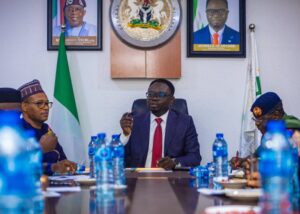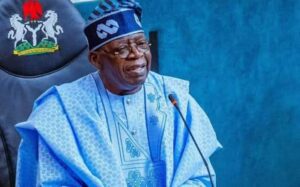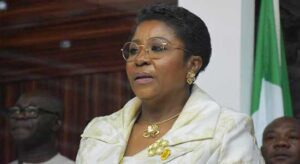
How non-state actors deprive LGs of N50bn revenue — Oyedele
The Chairman of the Presidential Fiscal Policy and Tax Reforms Committee, Taiwo Oyedele has blamed non-state actors for depriving local governments in the country of generating as much as N50 billion in revenue.
The tax reforms Chief disclosed this in an interview with Channels Television on Monday.
He explained that most of the levies that are charged by the collectors do not get to the government, stressing that the current chaos of multiple taxation nationwide will be eliminated when implantation starts.
Oyedele, while making reference to the Bureau of Statistics, stated that for 2022, all the local governments in Nigeria that sent reports to them, didn’t even collect N50 billion naira in a whole year, even though a lot is taken by non-state actors.
According to him, if properly streamlined, just the collection of stickers on vehicles could attract as much as N50 billion Internally Generated Revenue (IGR) for just one of the big local governments in the country.
“I think only one local government should collect N50 billion. The amount of wastage is mind-boggling.
“You don’t want to fathom it. And the reason why it’s so painful is that these are the monies we are extracting from the poorest people.
“But when you extract money from people who are just trying to make ends meet on a day-to-day basis, it’s painful that those monies are pilfered and you know, they are extorted and all of that.
“The state is not benefiting, the local government is not benefiting and the people are sacrificing, they are going through pain. So, what we are proposing is vastly different and benefits everyone,” he said.
Oyedele noted that the federal government is also meeting with state governors to suspend what he described as “nuisance taxes” nationwide.
He argued that banning nuisance taxes, which do not even go to government coffers, will ensure that the government makes more money while relieving the taxpayer of the burden of paying multiple taxes.
He said, “We are not waiting for the instrument to be out. Some of it would be, for example, asking states and local governments to suspend nuisance taxes that just create problems with very little revenue to show for it.
“We are already meeting with the governors. In some cases, we will set off small committees to discuss with their team. So, we’re already working on that. Once the thing is signed, there’s no excuse, just implement it like the next day,” he added.
He emphasised that when the governors agreed, then more than 90 percent of the problem would have been solved, with the local governments following closely.
He said, “So, we’re discussing with the governors first and demonstrating to them why this is good for the local government, good for them and good for us as a people. Once the governors agree, then, we’re not going to ignore the local governments.
“We are now taking a top-down approach, but we will engage with everyone, including during the conference of speakers, and the forums of finance commissioners. We’re engaging with everyone,” he added.
The committee chairman said he was as impatient as many Nigerians to see the results of the reforms and, more importantly, the impact on the people, particularly the small businesses.
“Unfortunately, fiscal policy matters are not as quick. So if you make a monetary policy decision today, you can see the impact tomorrow. Sometimes, fiscals take a little longer but even at that,” he said.
He stated that efforts were on to present some bills to the lawmakers so that Nigerian people could begin to feel the positive impact sooner rather than later, saying that by the end of the first quarter, the process would have been concluded.
According to him, when the new reforms take effect, payment of taxes will be easier.
“You can pay it once or you pay it in installments and electronically. It shouldn’t be that hard. It should not be harder to pay taxes than it is to buy pizza. So, the receipt comes on your phone.
“That way, the money gets to the government, and the people pay less. The government collects more and then we can then move on to the second phase of what we are also working on, which is how to spend that money to benefit the people,” he said.
According to him, the view of the committee is that the local government can collect more than 10 times what they are collecting now by following the recommendations.
“We are looking for sources where we can find at least N50 billion which we can then use to compensate them for suspending the taxes we’re asking them to suspend.
“We’re also thinking about how you bring all stakeholders on board because at the end of the day, if you stop the livelihood of anyone, whether they are earning it legitimately or not, you can create crises that would be difficult to manage.
“But once you bring everybody in, maybe we need to train those area boys and touts, give them uniforms and then they’ll be the ones to ask you to show the evidence on your phone.
“And then they get paid a decent salary. And if you give them the skills, some of them will on their own, move on from that job to something else. So, our strategy is to think about what’s best for our country and get all stakeholders to align,” he said.
Recall that President Bola Tinubu had inaugurated a tax reforms panel, saying it reflects his commitment to addressing challenges and bringing about transformative reforms in fiscal policy and taxation.
The committee’s primary objective is to enhance revenue collection efficiency, ensure transparent reporting, and promote the effective utilisation of tax and other revenues to boost citizens’ tax morale, foster a healthy tax culture, and drive voluntary compliance.



